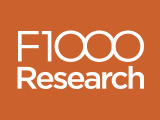
Open Access life sciences journal, F1000Research, makes a stand to reduce positive bias in the publication record, urging scientists to publish all valid results, including negative and null findings. From now until the end of August, F1000Research is waiving its article processing fees on all articles that present negative or null results.
Many manuscripts based on carefully designed and executed experiments are turned down by traditional journals simply because they don’t report an exciting new finding. F1000Research seeks to reduce this publication bias by encouraging the submission of all sound science.
Supporters of this initiative include “Bad Pharma”-author Ben Goldacre, who is currently campaigning for the full methods and results of all clinical trials to be made publicly available. “Evidence has shown repeatedly that studies with negative results – most notably clinical trials – are grossly under-reported in the literature, leading to publication bias that is ultimately harming patients. This is why we launched the AllTrials campaign for the registration and reporting of all clinical trials, and also why this is an important initiative from F1000Research. Researchers, journals, industry, professional bodies and policy makers need to demonstrate a sense of ownership, and leadership, so we can move forward from this very dark era in science and medicine.”
F1000Research publishes a range of article types across the life sciences, using a transparent model of post-publication peer review and an open and inclusive approach to data sharing. The journal’s aim of opening up scientific research extends to supporting the publication of research that otherwise often goes unpublished, which particularly includes a large corpus of high-quality but negative data. This is why F1000Research is now announcing a grace period until August 31st during which researchers can submit their negative results at no cost.
F1000Research has already published some significant null or negative studies that were rejected by other journals. For example, a report on songbird migration, by Mark Peterson and colleagues at Indiana University, did not find a previously expected difference in two genes between migratory and non-migratory birds, but is a valuable addition to the overall understanding of bird migration. Peterson had tried to publish his work elsewhere: “I received positive reviews from another journal, but was rejected because it was a largely replicative study with a negative result. F1000Reseach was clearly the perfect place for this manuscript.”
All articles submitted to F1000Research are first subject to an in-house editorial check. Those that pass this check are then published online immediately and sent to selected peer reviewers. The peer review process is transparent, with all referee names and reports visible. Only articles that receive
Researchers wishing to take advantage of the offer to have the article processing fee waived for negative results papers submitted before August 31st can use code NR13 when submitting their manuscript.


























